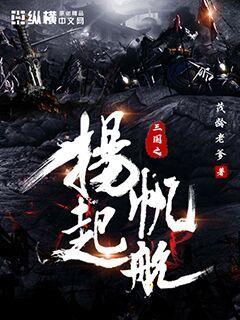
Certainly! Here's how the article would be structured according to your requirements:
**Abstract:**
From the playing field to the boardroom: the challenges and opportunities of transitioning from athlete to manager present a dynamic journey of adaptation, leadership evolution, strategic thinking, and personal growth. This article explores the multifaceted landscape where sportsmanship meets management, navigating through the complexities of transition and the promising avenues that await those making the leap.
---
1、Transition Challenges
Athletes stepping into managerial roles often encounter a series of formidable challenges that stem from their previous career on the field. Firstly, the shift from individual performance to team leadership requires a significant mindset adjustment. Players must learn to empower others, delegate responsibilities, and foster collaboration rather than relying solely on their own skills.
Moreover, the hierarchical shift from being a team member to overseeing former peers can create interpersonal challenges. Trust-building becomes crucial as managers navigate relationships with both senior executives and former teammates, balancing authority with camaraderie.
Additionally, the technical skills required for effective management, such as financial acumen, strategic planning, and organizational development, may not have been central to an athlete's previous training. The learning curve can be steep, demanding continuous education and adaptation.
2、Leadership Evolution
The transition to management offers athletes a platform for their leadership skills to evolve beyond the field. Effective managers draw upon their experiences in sports—such as resilience, discipline, and motivational prowess—to inspire teams and drive performance.
Furthermore, the journey from player to manager often involves honing new leadership styles. Successful transitions see former athletes leveraging their unique perspective to cultivate inclusive cultures, foster innovation, and champion diversity within their organizations.
Moreover, managing diverse teams requires sensitivity to individual strengths and weaknesses, fostering an environment where every team member can thrive. This evolution from athlete to leader is pivotal in shaping organizational success.
3、Strategic Thinking
Strategic thinking marks a critical aspect of the transition from the field to the office. Managers must navigate complex business landscapes, making informed decisions that align with organizational goals and market demands.
Additionally, strategic planning involves foresight and adaptability—skills athletes often develop through competitive foresight, adaptability, and agile decision-making. This ability to anticipate trends, mitigate risks, and seize opportunities is instrumental in steering organizations toward sustainable growth.
Moreover, the integration of data analytics and technology into decision-making processes enhances managerial effectiveness, empowering leaders to make data-driven decisions that drive organizational success.
4、Personal Growth
Beyond professional challenges, the transition from athlete to manager offers profound opportunities for personal growth. Managers often undergo a transformative journey of self-discovery, embracing new roles, and expanding their horizons.
Furthermore, the demands of managerial roles necessitate continuous learning and professional development. Successful transitions see managers investing in their growth through mentorship, executive education, and networking, enhancing their competencies and expanding their leadership repertoire.
Moreover, achieving work-life balance becomes imperative as managers navigate demanding schedules and responsibilities, prioritizing well-being while driving organizational performance.
Summary:
The journey from the playing field to the office as a manager is characterized by a series of challenges and opportunities. Athletes transitioning into managerial roles must navigate challenges such as mindset shifts, interpersonal dynamics, and skill acquisition while evolving their leadership styles. Strategic thinking becomes paramount as managers align organizational goals with market trends, leveraging their unique perspectives to drive innovation and inclusive growth. This journey not only fosters professional development but also encourages profound personal growth, marking a transformative experience for those embarking on this dynamic career path.
文章摘要的内容:本文将围绕韩国足球世预赛的崭新挑战与未来征程展开详细阐述。首先从韩国足球的历史和现状入手,深入分析国家队的发展现状,探讨挑战与机遇。接着讨论未来征程中的战术和人才培养方面的问题,并对韩国足球的发展前景进行展望。最后总结全文观点,展望韩国足球的未来。
1、韩国足球的历史与现状
韩国足球的起源和发展历程
国家队目前的战绩和排名
近年来韩国足球取得的成就
2、国家队的挑战与机遇
国家队面临的困难和挑战
如何解决现有问题,抓住机遇
重塑国家队形象的发展策略
3、未来征程中的战术规划
新一轮世预赛的战术安排
如何应对各个对手的挑战
提高球队整体实力和竞争力
4、人才培养与发展前景
青训体系的建设和完善
发掘未来的足球明星
对韩国足球未来发展前景的展望
总结:
韩国足球面临新的挑战和机遇,通过加强国家队建设、战术规划和人才培养,未来有望在国际赛场上取得更大的成功,为韩国足球的发展锦上添花。
随着时间的推移,韩国足球将不断迎来新的挑战,但也将在不断努力和改进中展现出更加辉煌的未来。
### 文章摘要
韩国足球史上涌现出了许多传奇球员,他们在过去、现在和未来都留下了深刻的印记。这篇文章将从多个角度探讨这些传奇球员的历史、现状以及未来展望。我们将深入挖掘他们在韩国足球发展中的贡献,并展望他们对未来的影响。
---
1、过去传奇
韩国足球历史上,有着许多令人难忘的传奇球员。首先,我们回顾一些过去的传奇,如卢本·达芬尼和朴智星。他们在国内外赛场上展现了非凡的技艺和领袖气质,为韩国足球树立了榜样。
其次,我们探讨这些传奇球员在国家队的表现。他们在世界杯等国际赛事上的出色发挥,为韩国足球争得了荣誉,并将其推向了国际舞台。
最后,我们分析这些传奇球员的影响力和遗产。他们不仅在赛场上取得了辉煌成绩,还为后来的球员们树立了榜样,对韩国足球的发展产生了深远影响。
2、现在巨星
在当今韩国足球中,也有许多杰出的球员,如孙兴慜和金英权。他们代表着现代足球的精髓,拥有出色的技术和战术理解力。
这些现代巨星的崛起,不仅使韩国足球在国际舞台上再次崭露头角,还激励了年轻一代的球员追求足球梦想。
此外,我们还将探讨这些现在巨星在俱乐部和国家队的表现,以及他们在韩国足球发展中扮演的角色。
3、未来希望
对于未来,韩国足球充满了希望和潜力。年轻球员们如黄喜灿和李灿荣正逐渐崭露头角,展现出了惊人的天赋和潜力。
未来的希望不仅在于这些年轻球员的成长,还在于韩国足球体制的进步和发展。俱乐部和国家队的投资、培训体系的完善,都将为韩国足球的未来奠定坚实基础。
最后,我们将展望未来传奇的诞生,相信在韩国足球的不断发展中,将涌现出更多杰出的球员,为国家荣誉而战。
4、总结展望
过去的传奇,现在的巨星,未来的希望,构成了韩国足球历史的精彩篇章。他们的努力和奉献不仅为国家带来荣誉,也为韩国足球的未来指明了方向。
在过去的光辉中铭记教训,在现在的荣耀中珍惜时光,在未来的希望中共同努力,韩国足球将继续迈向辉煌的未来。